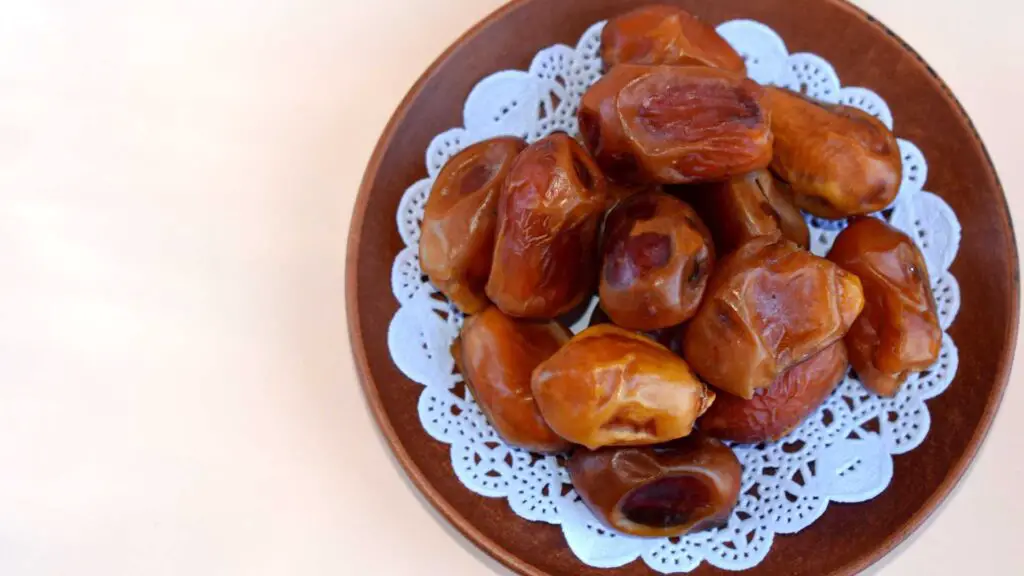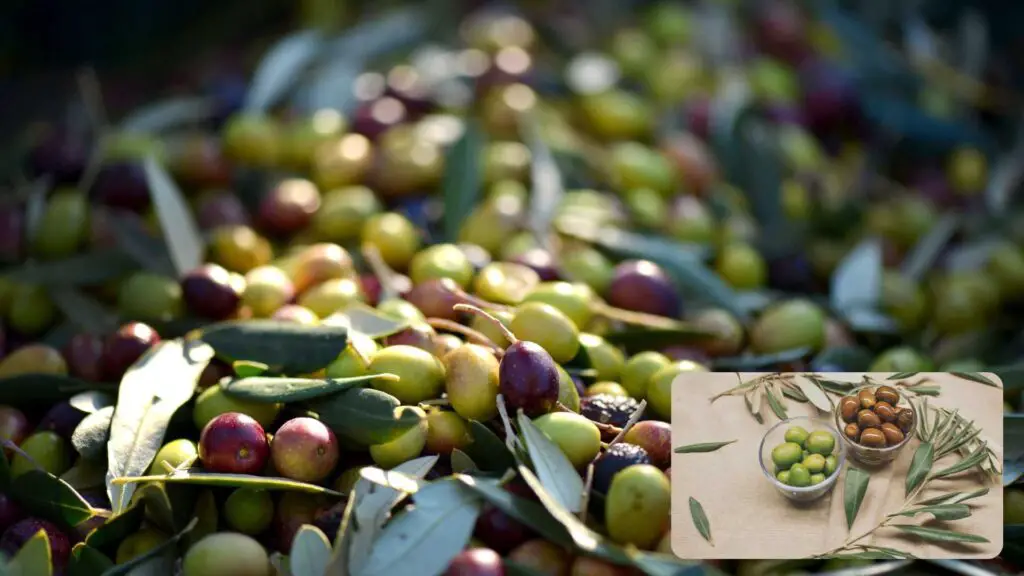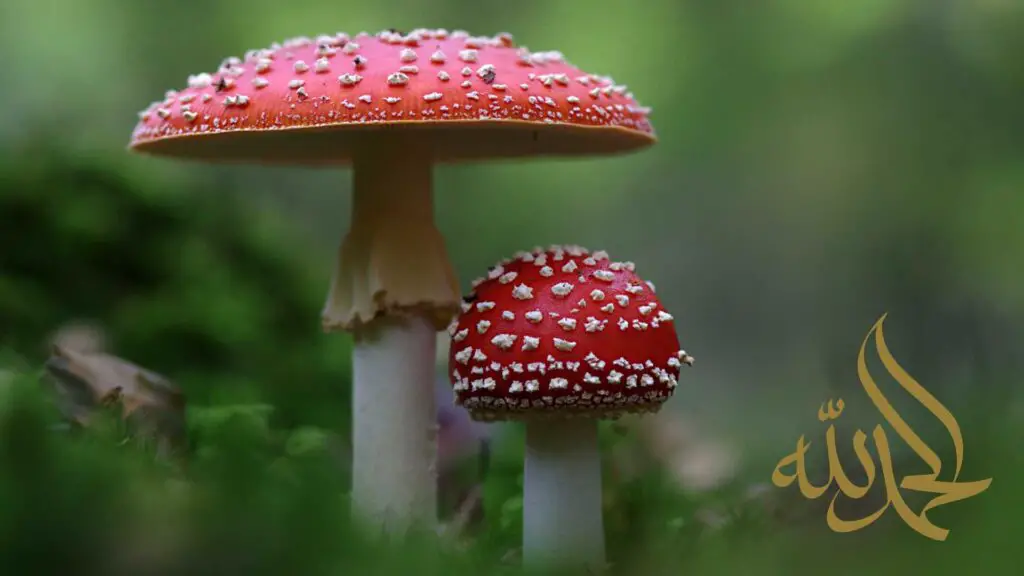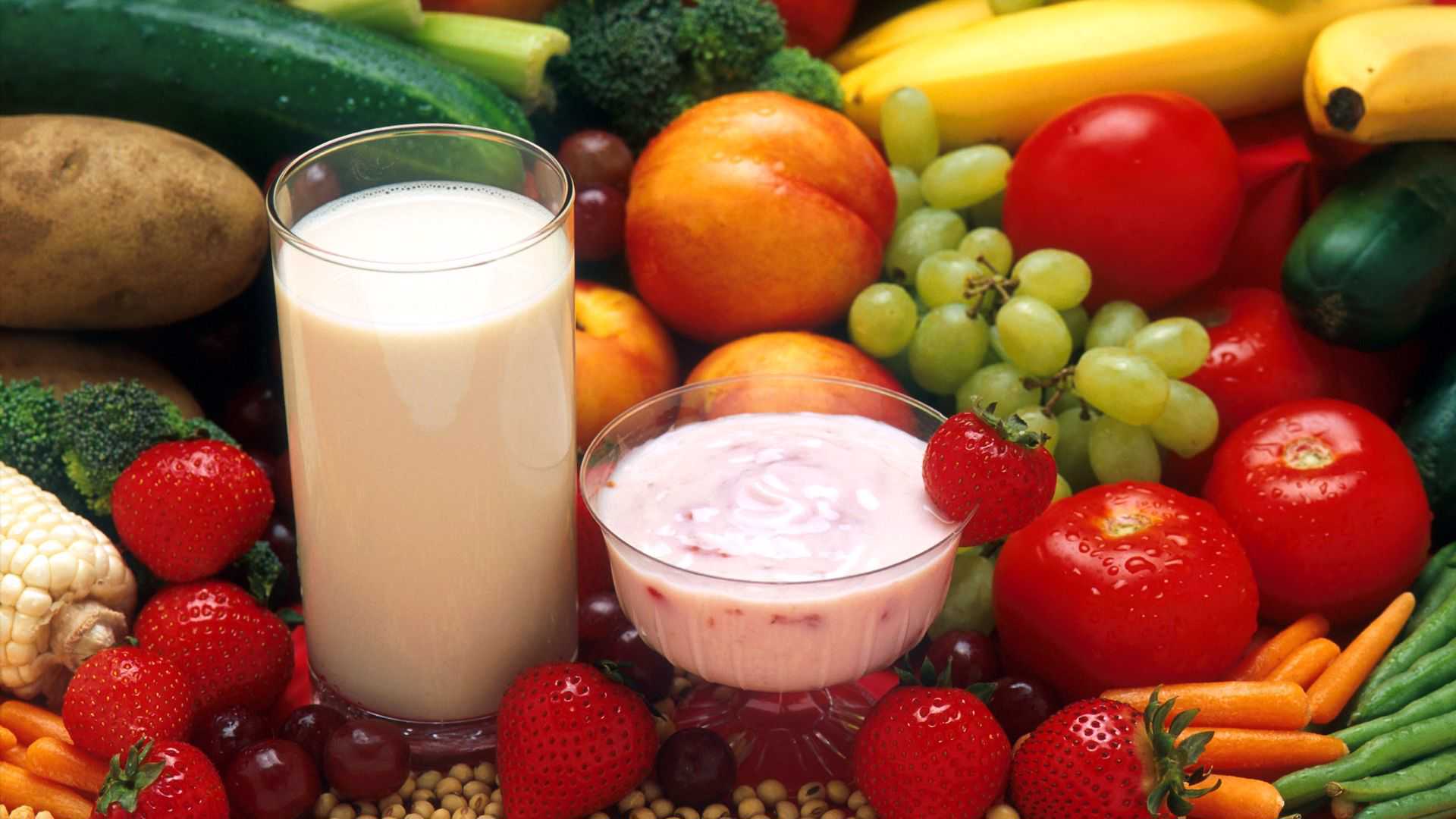There is a lot of food on earth that Allah has given to us. and many of these foods are mentioned in the Quran.
We have a broad range of food that is full of vitamins and minerals and offer a variety of health advantages.
Nevertheless, we have substituted artificial sweets for natural sweetness and various fatty meats for fruits and vegetables.
The Quran and Sunnah reference a wide variety of foods. The Quran and Hadith, the two primary sources of Islamic teachings, mention several foods that are considered permissible (halal) for Muslims to consume.
We’re showcasing 15 Foods mentioned in the Quran today that we think we should strive to include in our regular diets.
15 of the Foods mentioned in the Quran
1) Dates

In Islamic history, dates have been a mainstay. They are abundant in fibre, vitamins, minerals, and antioxidants. They make excellent natural sweeteners as well. it is one of the most mentioned fruits in the Quran
‘A House in which there are no dates, its people will go hungry’ – Sunan ibn majah 3327
Dates are considered a dietary powerhouse because of their incredible nutritional value. Allah specifies dates in surah Maryam: 25,
“And shake the trunk of date-palm towards you; it will drop on you fresh ripe-dates.” {Surah Maryam: 25}
In Surah Abaas, Al-Rahman, Qaf, Maryam, Al-Anaam, and other verses, they are mentioned. Since it is Sunnah to eat seven dates every morning, dates should always be a part of our diet, even when Ramadan is not in effect. Dates can act as multivitamins since they are so nutrient-dense. They are excellent for overall gut health because they are high in fibre. Manganese, iron, magnesium, calcium, potassium, copper, and vitamin B6 are all abundant in dates. These necessary vitamins and minerals are helpful for a number of medical disorders. Additionally, dates include a variety of antioxidants include flavonoids, carotenoids, and phenolic acid.
2) Olives

Both olives and olive oil are very beneficial to your health. They are a good source of calcium, copper, iron (from black olives), and vitamin E. Apart from dates, olives are also another of the mostly occuring Foods mentioned in the Quran.
Monounsaturated oleic acid and antioxidants are abundant in olive oil.
‘Eat olive and use its oil, for indeed it is a blessed tree’ – Jami at-Tirmidhi 1851
“By the fig and the olive, And [by] Mount Sinai, And [by] this secure city [Makkah], We have certainly created man in the best of stature.” – Surah At-Tin (95:1-4)
“And it is He who sends down rain from the sky, and We produce thereby the growth of all things. We produce from it greenery from which We produce grains arranged in layers. And from the palm trees – of its emerging fruit are clusters hanging low. And [We produce] gardens of grapevines and olives and pomegranates, similar yet varied. Look at [each of] its fruit when it yields and [at] it’s ripening. Indeed in that are signs for a people who believe.” – Surah Al-An’am (6:99)
3) Meat

The Quran allows Muslims to consume the meat of certain animals, including cattle, sheep, goats, and camels, that have been slaughtered according to Islamic guidelines. The method of slaughter is known as dhabiha, in which the animal’s throat is slit while reciting the name of Allah.
There are many references to meat and meat consumption among the foods mentioned in the Quran.
“And do not eat of that upon which the name of Allah has not been mentioned, for indeed, it is grave disobedience”
(6:121)
The significance of reciting Allah’s name before consuming meat is emphasised in this verse.
“He has only forbidden to you dead animals, blood, the flesh of swine, and that which has been dedicated to other than Allah. But whoever is forced [by necessity], neither desiring [it] nor transgressing [it’s limit], there is no sin upon him. Indeed, Allah is Forgiving and Merciful”
(2:173)
The sorts of meat that Muslims are not allowed to eat, unless it is absolutely necessary, are listed in this verse.
“O you who have believed, eat from the good things which We have provided for you and be grateful to Allah if it is [indeed] Him that you worship”
(2:172)
This verse exhorts Muslims to eat the healthful, delicious food that Allah has given.
“And [He created] the grazing livestock for you; you obtain from their warmth and numerous benefits, and from them, you eat”.
(16:5)
The verse emphasises the advantages of cattle, which also includes meat as a food source.
4) Black seed

The seeds of the Nigella sativa plant are known by the common term “black seed.”
It is also known as Roman coriander, black caraway, fennel flower, nigella, and black cumin.
These seeds are used to make black seed oil.
This has the potential to ease pain and relax the muscles. Additionally, asthmatic symptoms have been observed to lessen in clinical tests.
Every sickness, with the exception of death, is treated by them, according to the hadith below.
“Use this black seed. For indeed it contains a cure for every disease except As-Sam and As-Sam is death – Jami at Tirmidhi 2041
5) Watermelon

Vitamins A and C are present in watermelon, which also keeps you hydrated due to its high water content. Eating them with fresh dates is sunnah.
‘The Messenger of Allah used to eat melon with fresh dates, and he used to say; the heat of the one is broken by the coolness of the other, and the coolness of the one by the heat of the other’ – Sunan Abi Dawud 3836
6) Honey

A potent remedy full of antioxidants is honey. It promotes healthy blood sugar levels, heart health, wound healing, and much more.
‘The prophet said ‘healing is in three things; a gulp of honey, cupping, and branding with fire (cauterising) but I forbid my followers to use (cauterising) branding with fire’ – sahih al Bukhari 5680
Honey is one of the meals mentioned in the Quran multiple times, just after dates. One of the most famous quotations is found in Surah An-Nahl, verses 68-69, where it is stated:
“And your Lord inspired the bee, saying, “Take for yourself among the mountains, houses, and among the trees and [in] that which they construct. Then eat from all the fruits and follow the ways of your Lord laid down [for you].” There emerges from their bellies a drink, varying in colors, in which there is healing for people. Indeed that is a sign for a people who give thought.”
Allah explains in this verse how bees are led to establish homes in various locations and collect nectar from flowers, which they then transform into honey. The honey is a symbol of Allah’s strength and wisdom and has therapeutic benefits for people.
“And We sent down from the sky water in measure and We gave it lodging in the earth, and indeed, We can take it away. So We brought forth for you thereby gardens of palm trees and grapevines in which for you are abundant fruits and from which you eat. And [We brought forth] a tree issuing from Mount Sinai which produces oil and food for those who eat. And indeed, in that are signs for a people who give thought.” – Surah Al-Mu’minun, verse 20
As an example of His kindness and generosity, Allah lists all the bounties He has bestowed upon people in this verse, including the provision of honey from bees.
7) Figs

Figs are a good source of calcium and potassium, two nutrients that assist increase bone density and are referenced in the Qur’an.
Figs are one of the foods mentioned in the Quran both directly and indirectly.
‘I swear by the fig and the olive’ 95:1
“And fruit as provision for you and your grazing livestock.” – Surah Al-Ghashiyah, verse 28
“He causes to grow for you thereby the crops, olives, palm trees, grapevines, and from all the fruits. Indeed that is a sign for a people who give thought.” – Surah Al-Nahl, verse 11
7) Grapes

The Quran makes mention of grapes. Copper and vitamin K are abundant in grapes.
While vitamin k is needed for blood clotting and strong bones, copper is a crucial mineral involved in the creation of energy. abundant in antioxidants as well.
‘With water, We produce gardens of date palms and grape vines. There is plenty of fruit for you to eat.’ 23:19
“And within the land are neighboring plots and gardens of grapevines and crops and palm trees, [growing] several from a root or otherwise, watered with one water; but We make some of them exceed others in [quality of] fruit. Indeed in that are signs for a people who reason.”
(Quran 13:4)
“And He sends down rain from the sky, and We produce thereby the growth of all things. We produce from it greenery from which We produce grains arranged in layers. And from the palm trees – of its emerging fruit are clusters hanging low. And [We produce] gardens of grapevines and olives and pomegranates, similar yet varied. Look at [each of] its fruit when it yields and [at] it’s ripening. Indeed in that are signs for a people who believe.”
(Quran 6:99)
One of the fruits that Allah created for humans to enjoy, along with other bounty and blessings, is grapes, according to these verses. They also draw attention to the splendour and diversity of Allah’s creation and urge people to think on the manifestations of His strength and knowledge.
8) Pumpkins

Among the many vitamins found in pumpkins are vitamins k, a, and e, which make them sunnah food.
‘Anas.b.malik reported that a person invited Allah’s messenger to a meal. I also went along with him. He brought soup containing pumpkin. Allah’s messenger ate that pumpkin with relish’ – Sahihi Muslim 2041
9) Pomegranate

Pomegranates are loaded with antioxidants and vitamins including vitamin C and folate.
Pomegranate is one of the foods mentioned in the Quran multiple times. The pomegranate is one of the fruits that Allah created for mankind, along with other fruits like grapes and olives, and Allah mentions it in Surah Al-An’am, Chapter 6, Verse 99. He also uses the variety and beauty of His creation as a sign for believers.
In Surah Ar-Rahman, Chapter 55, Verse 68–69, Allah mentions the pomegranate as well.
“In both of them are fruit and palm trees and pomegranates.
So which of the favors of your Lord would you deny?”
This verse is a part of a longer passage in which Allah invites people to consider and thank Him for His favours while describing the wonders and blessings of His creation.
10) Fish

Fish are a good source of omega-3 fatty acids, which are crucial for growth and development and are referenced in the Quran. Choose fish low in mercury, like salmon, sardines, and trout.
‘For your benefit, He created the sea; from it, you get fresh meat to eat, and extract jewellery that you wear. You see the ships sailing over the waves to seek His gifts, so you may be thankful’ 16:14
11) Mushrooms

According to the Prophet Muhammad’s sunnah, the liquid from mushrooms can treat eye problems.
They include beta-glucan and are a strong source of vitamin D.
Your immune system is boosted by this substance, which also improves your body’s capacity to fight infection.
‘Truffles (mushrooms) are a form of manna, and its liquid is a cure for the eye’ – Jami at-Tirmidhi 2067
12) Bananas

The Quran says in Surah Al Waqiah (chapter 56 verse: 27-33):
“And the people of the right-how blessed will they be! They will be amid thornless lote trees, clusters of bananas, extended shade, flowing water, abundant fruit never out of season nor forbidden”
In the Quran, fruit is generally mentioned as being consumed by those in paradise, and bananas are specifically mentioned, indicating that they are among the blessed fruits. Bananas are a wonderful source of potassium and vitamin B6, making them a great complement to your breakfast or morning snack. Potassium helps keep muscles and bones in good functioning order and is crucial for nerve and fluid balance. Amino acid synthesis and consequently effective protein function in the body depend on vitamin B6. Additionally, bananas freeze well and are the ideal ingredient for ice cream and other frozen treats! For other banana dessert ideas, check out my 3-ingredient healthy chocolate chip ice cream!
13) Milk

It’s also advised to consume animal-produced pure milk. Prophet Muhammad SAW was known to frequently consume goat and camel milk.
14) Corn

Corn has a high enough protein level to complement a diet plan because it can speed up metabolism, prolong feeling of fullness, and support muscle growth.
15) Ginger

This herbal component is a concoction of liquids from heaven. This is due to the health advantages of ginger. For instance, it can help alleviate nausea and ease menstrual pain in women as well as prevent cancer.
Conclusion:
In summary, the Quran and Hadith permit Muslims to consume a wide variety of foods, provided they are halal and consumed in moderation. These were only some of the Foods mentioned in the Quran and hadith. You can find many more. Islam emphasizes the importance of eating wholesome, nutritious foods and avoiding excess, as overindulgence can lead to health problems and spiritual harm.
These were some of the amazing Foods mentioned in the Quran. Read more Islamic Blogs or Follow us on social media for daily Islamic reminders.






